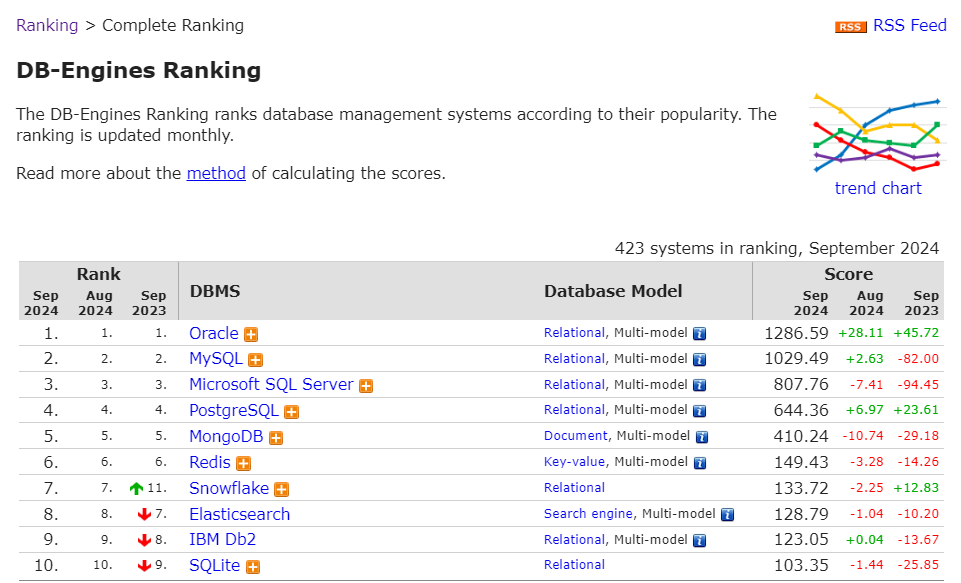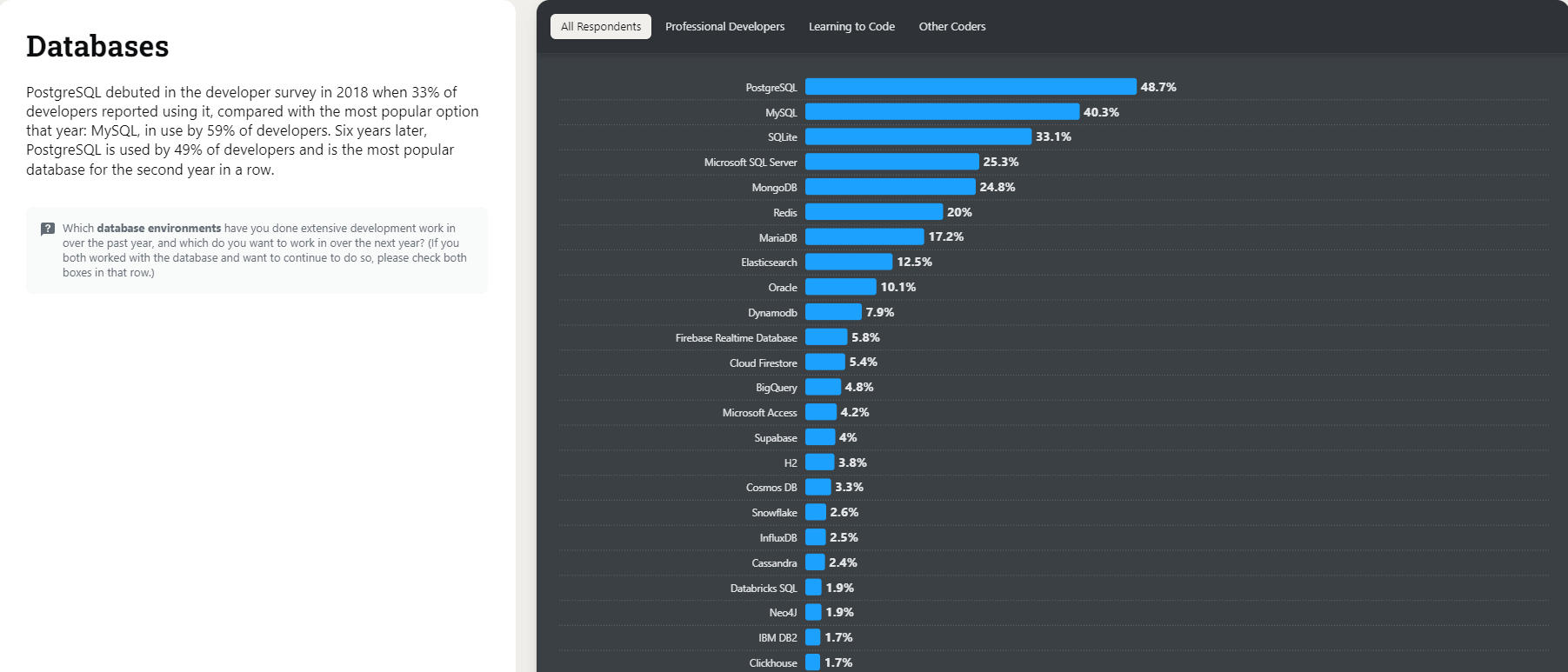"Companies are collecting large amounts of data and analyzing it to make strategic decisions in various processes within their businesses, which is why there is an increasing demand for data analysts. Additionally, data analysis technology and tools are constantly evolving, which makes data analysts' work more efficient."
"A data analyst collects, cleans, and interprets data sets in order to answer a question or solve a problem."
Six steps of data analysis:
- Business Question: Define what problem you want to solve.
- Get Data: Collect the data required for analysis.
- Explore Data: Explore data with visual exploration to understand what is in a dataset.
- Prepare Data: Data cleaning, calculated fields and data validation.
- Analyze Data: Use data analysis techniques to understand, interpret, and derive conclusions based on the requirements.
- Present Findings: Share insights with stakeholders.
"Statistical foundations are crucial for a data analyst because they form the basis of the data analysis process. Through statistical methods, a data analyst can use a scientific approach to understand, interpret, and report on data results."
- Statistics for Data Science | Probability and Statistics | Statistics Tutorial | Ph.D. (Stanford)
- Statistics - A Full University Course on Data Science Basics
- Statistics Course Overview | Best Statistics Course | MarinStatsLectures
- Crash Course: Statistics
- Statistics for Data Science Course | Probability and Statistics | Learn Statistics Data Science
- How I use Math as a Data Analyst?
- Statistics Cheatsheet - CME 106, Stanford University
- Statistics Cheat Sheet, MIT
- Descriptive Statistics Cheat Sheet, DataCamp
- Think Stats, by Allen B. Downey
- Statistics in Plain English, by Timothy C. Urdan
- Computer Age Statistical Inference, by Bradley Efron and Trevor Hastie
"Excel is a commonly used tool for data analysis and is important for data analysts because it helps to organize, analyze, visualize, and manipulate data. Additionally, it is user-friendly and accessible to most data analysts."
- Microsoft Excel Tutorial for Beginners - Full Course, freeCodeCamp
- Excel Tutorials for Data Analysts
- Beginner to Pro FREE Excel Data Analysis Course
- Microsoft Excel Tutorial for Beginners | Excel Training | Excel Formulas and Functions | Edureka
- Advanced Excel Full Course 2023 | Excel Tutorial For Beginners | Excel Training | Simplilearn
- How I use Excel as a Data Analyst
- Excel Quick Reference
- Excel Basics Cheat Sheet
- Hackr Excel Cheat Sheet
- Exceldemy Excel Cheat Sheet
- Microsoft Excel Manual, University of Mary Washington
- Excel Fundamentals, St. George’s University of London
"SQL is a programming language used by database management systems for storing, querying, organizing, and managing data. Knowing SQL is important for a data analyst because it is a tool used for querying, filtering, joining, and analyzing data. SQL is used by data analysts for managing and analyzing data, and it helps make analysis processes more efficient and effective."
- SQL for Data Analytics - Beginners Guide by Standford University
- SQL With Practice Exercises
- SQL Server Execution Plans
- SQL Full Course In 10 Hours 2023 | SQL Tutorial For Beginners | SQL For Beginners | Edureka
- SQL Tutorial For Beginners 2023 | SQL Full Course 2023 | SQL Tutorial 2023 | Simplilearn
- SQL Tutorial - Full Database Course for Beginners
- Oracle Tutorial Introduction of Oracle SQL | Basics of a database for beginner
- PostgreSQL Tutorial Full Course 2022
- MySQL Full Course for free 🗄️ (2023)
- SQL Dersleri SQL Server ile SQL Eğitimi 2022, Turkish
- SQL ve Database Eğitim Serisi, Turkish
- PL/SQL Eğitim Setisi, Turkish
- Khan Academy — Intro to SQL: Querying and Managing Data
- Codecademy - Learn SQL
- Danny Ma 8 Week SQL Challenge
- Kaggle - Intro to SQL
- SQLcourse
- edX All SQL Courses
- SQLZoo Tutorial
- SQL Bolt
- PostgreSQL Tutorial
- SQL Tutorial Website
- freeCodeCamp SQL Tutorial
- RIP SQL Tutorial
- W3 Schools SQL Tutorial
- SQL Mode SQL Tutorial
- SQL Tutorial from tutorialspoint
- SQL Tutorial from Bipp
- Codewars
- HackerRank
- LeetCode
- SQL Murder Mystery
- SQL Battle
- Advanced SQL Puzzles
- SQLFiddle
- Online SQL Lite Database
- Postgres Online Database
- SQL Basics Cheat Sheet
- SQL Cheat Sheet by SQL Tutorial
- SQL Basics Cheat Sheet by DataCamp
- SQL Commands Cheat Sheet – How to Learn SQL in 10 Minutes
- SQL Cheat Sheet for Newbies
- SQL Commands Cheat Sheet by IntelliPaat
- SQL Cheat Sheet by Mosh Hamedani
"BI (Business Intelligence) tools are important for data analysts because they are used to analyze, visualize and make sense of data. These tools help data analysts to speed up their workflow and better understand data. BI tools offer different visualization techniques and graphs to analyze data and visualize it for management decisions. This enables data analysts to better understand data, interpret results more effectively and create a better foundation for business decisions."
- Microsoft Learn For Power BI
- Microsoft Power BI Community
- Power BI Beginner Tutorial
- Power BI Full Course - Learn Power BI in 4 Hours | Power BI Tutorial for Beginners | Edureka
- Power BI Tutorials for Beginners
- Hands-On Power BI Tutorial 📊Beginner to Pro [Full Course] ⚡
- Power BI Tutorial
- Introduction to Power BI by DataCamp
- Enterprise DNA
- Guy in a Cube
- Solutions Abroad
- SQLBI
- Avi Singh - PowerBIPro
- Power BI Eğitim Seti, Turkish
- Power BI Eğitimleri TV & Momentum Datalabs, Turkish
- Tableau Community
- Tableau Public
- Complete Tableau 2021 Training for Absolute Beginners
- Tableau Official Free Training Videos
- Tableau | A Quick Start Guide
- Tableau Expert Full Course | Tableau Training | Tableau Tutorial | Tableau Full Course | Simplilearn
- Tableau Full Course - Learn Tableau in 6 Hours | Tableau Training for Beginners | Edureka
- Tableau Tutorial for Beginners - Getting to know Tableau Desktop Workspace / Interface / Canvas
- Tableau Full Course - in 3 Hours | Become a Data Visualization Rockstar | Beginner Level
- Tableau Desktop Crash Course: Go from zero to Dashboard for Data Analysts
- Tableau ile Veri Görşelleştirme- Kürşat Yalın, Turkish
"Python is important for data analysts because it is considered a programming language that can be used for many data analysis processes. Python can be used for many data analysis processes, such as analyzing large datasets, data manipulation, data visualization, machine learning modeling, data mining processes, and data cleaning processes. Additionally, Python's open-source nature, free availability, and ease of learning are advantages for a data analyst. Therefore, knowing Python as a data analyst creates a versatile tool for data analysis processes and can help make data analysis processes faster, more efficient, and more accurate."
- Python.org
- Python by Codeacademy
- Learnpython.org
- Learning Python: From Zero to Hero
- Google's Python Class
- Python Tutorial
- Python Tutorial by W3Schools
- Introduction to Python
- Python Tutorial for Beginners
- Introduction To Python Programming
- Learn Python for Total Beginners
- Python for Absolute Beginners!
- Programming for Everybody (Getting Started with Python)
- Python Full Course for free 🐍
- Python Tutorial - Python Full Course for Beginners
- Python for Beginners – Full Course Programming Tutorial
- Python for Beginners Full Course - 2023 | Python Full Course - Learn Python in 12 Hours | Edureka
- Python Tutorial for Beginners - Full Course in 12 Hours (2022)
- Python Full Course 2022 | Python Tutorial For Beginners 2022 | Python Programming | Simplilearn
- How I use Python as a Data Analyst?
- Tech With Tim
- Avery Smith - Data Career Jumpstart
- Thu Vu data analytics
- WeCloudData
- Tina Huang
- Alex The Analyst
- Ken Jee
- Python Dersleri by Yakın Kampüs, Turkish
- Sıfırdan İleri Seviye Profesyonel Python Yazılım Geliştiricisi Olma Kursu 2022, Turkish
- Yeni Başlayanlar İçin Sıfırdan Python Dersleri, Turkish
- Python Eğitimi, Turkish
- Python Dersleri - Python 3 Programlama Dili ile Temel Programlama Eğitimi, Turkish
- Data Analysis with Python Course - Numpy, Pandas, Data Visualization
- Python Data Visualization Tutorial | Python Data Visualization Projects Examples | Simplilearn
"What are the soft skills that a Data Analyst should have?"
-
Analytical Thinking: Analytical thinking skills are required to understand, manage and interpret data. A data analyst must use logical and critical thinking skills to analyze data and make decisions based on the results.
-
Communication Skills: Data analysts must have effective communication skills to explain complex data by translating technical terms into easily understandable language and to interact with other team members. Sharing the results of data analysis and discussing action plans with other team members is important for a successful data analyst.
-
Problem Solving: A data analyst must identify problems by analyzing data and develop effective strategies to solve them. Therefore, problem-solving skills require a flexible approach that can adapt to the complexity and variability of data.
-
Teamwork: Data analysts must be effective in teamwork and be able to collaborate with team members to exchange ideas during the data analysis process. A data analyst may also interact with other teams (such as marketing, engineering, etc.), so teamwork skills are of great importance.
-
Business Understanding: A data analyst must have an understanding of business. Understanding business needs and goals can help in asking the right questions and obtaining the right results in data analysis.
-
Storytelling: A data analyst must have effective storytelling skills to communicate data. By presenting data in an understandable way, a data analyst can help in the effective use of data.
- There is nothing called PERFECT resume, so keep learning and updating!
- Prepare one page resume and use professional template.
- Based on above learnings and projects update your resume.
- Also, if you have done any courses/certificates do add them as well.
- Tailor your resume based on the role/company you’re applying.
Free resume template websites:
Interview Preparation:
- Once you have completed all the above steps, just start applying for related jobs. Giving interview is also a part of your learning.
- Be thorough with your resume, even with minute details.
- Again, watch podcasts and interview experience shared on YouTube.
- Read interview questions available on sites like: LinkedIn, Indeed, Glassdoor.
Ta ta ta ta congratulations!, you are now a Data Analyst and you can apply for your dream job and company. 🥳🎉
If you've come this far and reviewed or completed all the steps, you can help me by giving this repository a star ⭐.
You can open an issue and give your suggestions as to how I can improve this roadmap, or what I can do to improve the learning experience.
You can also fork this repo and send a pull request to fix any mistakes that you have found.







